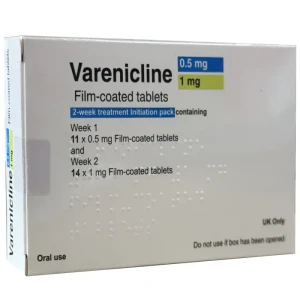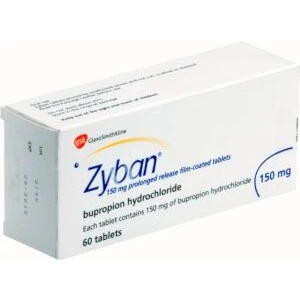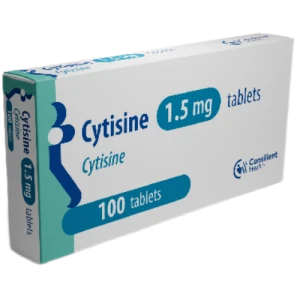What Happens When You Stop Smoking?
Quitting smoking is an important journey in anyone’s life. Dealing with cravings, withdrawal symptoms, and stress can be challenging, so it’s important to have a clear understanding of what to expect before attempting to kick the habit. Preparing for what might come your way and having an effective support network will give you the best possible chance of success.
So, what happens when you stop smoking? In this article, we examine the impact on your body, discuss potential health benefits, and provide information about withdrawal symptoms, cravings, and strategies for managing stress. Read on to find out everything you need to know.
START YOUR STOP-SMOKING CONSULTATION TODAY
What are the Health Benefits of Quitting Smoking?
Smoking harms almost every organ in the body, so quitting is one of the best things you can do for your health. Fortunately, recovery begins within hours of your last cigarette and, over time, quitting smoking can reduce your risk of:
- Premature death
- Cardiovascular disease
- Chronic obstructive pulmonary disease (COPD)
- Several types of cancer
- Poor reproductive health
- Stroke
- Respiratory infections (such as bronchitis and pneumonia)

Other potential health benefits of quitting smoking include:
- Reduced inflammation
- Reduced hypercoagulability (the tendency for blood to clot unnecessarily)
- Improved HDL cholesterol levels
- Better overall health status and quality of life
- Improved health for pregnant women and their foetuses or babies
- Better health outcomes for people already diagnosed with cardiovascular disease and COPD
Overall, the health benefits of stopping smoking can add up to 10 years to your life expectancy. Quitting earlier in life can produce better health outcomes, but anyone can benefit from smoking cessation - even those who have smoked heavily for many years.
What Happens When You Quit Smoking?
Your body begins recovery as soon as you stop smoking, and 95% of former smokers feel better within weeks of their last cigarette. Unfortunately, the earliest stages of quitting are also the most challenging, and 75% of people relapse in the first 6 months.
You can increase your chances of a successful quit attempt by preparing yourself beforehand. This includes making a plan to handle withdrawal symptoms and cravings, and learning more about what happens to your body after you quit smoking. Here, we’ll discuss the emotional aspect of smoking cessation, how to deal with stress after quitting, and how the body responds to nicotine withdrawal.
Champix
- Blocks the rewarding effects of smoking
- Reduces cravings and withdrawal symptoms
- High long-term abstinence rates
Potential Side Effects of Quitting Smoking Suddenly
Quitting smoking suddenly (also called going ‘cold turkey’) is a technique that relies on willpower, rather than the use of anti-smoking aids. This is the least effective of all stop-smoking methods, producing a long-term quit rate of only 3 or 4 in every 100 people.
This is because most people who quit without nicotine replacement therapy (NRT) or medicines experience worse cravings and withdrawal symptoms than those using anti-smoking products. Quitting smoking abruptly isn’t dangerous, but it may not be the most effective way to achieve a smoke-free life.
Smoking Withdrawal Symptoms
Nicotine is highly addictive, and most people who quit smoking experience withdrawal symptoms, especially in the first few weeks. These symptoms typically subside over time, but can be uncomfortable in the early stages of smoking cessation.
Knowing how nicotine withdrawal might feel can make it easier to prepare for these first steps in your quitting journey. It can also help you find strategies to cope with triggers and cravings and, ultimately, make your quit attempt a success. The most common smoking withdrawal symptoms include:
- Cravings
- Irritability
- Restlessness
- Difficulty concentrating
- Sleep problems
- Increased appetite
- Anxiety and other mood changes

What Happens to Your Body When You Stop Smoking?
Your body starts to heal as soon as you quit smoking and, over days, weeks, and years, your risk of smoking-related disease decreases. Here's a brief timeline of events:
- After 20 minutes, your heart and pulse rate will return to normal
- After 8 hours, carbon monoxide levels in the body will reduce by half, and oxygen levels will begin to recover
- After 48 hours, carbon monoxide levels drop to those of a non-smoker, and the lungs start clearing out mucus
- After 72 hours, breathing feels easier as the bronchial tubes begin to relax
- After 2-12 weeks, circulation has significantly improved, and the heart and muscles have a better blood supply
- After 3-9 months, lung function increases by up to 10% and breathing problems improve
- After 1 year, your risk of a heart attack will drop to half that of a smoker
- After 10 years, your risk of lung cancer will be half that of someone who smokes

Stop Smoking and Weight Gain: Is There a Link?
Weight gain is a common side effect of smoking cessation, and people gain an average of 5-10 pounds in the months after they quit. Cigarettes can suppress appetite, so it’s normal to feel hungrier after you quit smoking. What’s more, your body may not burn calories as quickly after you stop smoking. This is because nicotine speeds up your metabolism, increasing your calorie expenditure by 7 - 15%.
Therefore, stopping smoking can lead people to eat more and burn fewer calories, with weight gain as a natural consequence. You may be able to manage weight gain after quitting by:
- Choosing Healthy Snacks: Many people snack between meals to satisfy a larger appetite or to keep their hands and mouth occupied in the absence of cigarettes. You can mitigate the effect this has on your weight by choosing low-calorie foods, such as fruits, raw vegetables, or low-fat yoghurt.
- Exercising: Physical activity is always beneficial for health, and even gentle exercise (like walking) will burn calories. Movement can also help distract you from nicotine cravings.
- Eating Mindfully: Mindful eating involves focusing on your food without distractions from the TV or your phone. ‘Distracted eating’ often leads to greater caloric intake, whereas ‘mindful eating’ makes it easier to notice when you’re getting full.
- Chewing Sugar-Free Gum: Substituting snacks for sugar-free gum and mints can keep your mouth occupied without contributing to your calorie intake.
- Avoiding Liquid Calories: The calories in fizzy drinks, fruit juice, and alcoholic beverages can add up fast. If you’re trying to control weight gain after quitting smoking, sticking to plain water and herbal tea can significantly reduce your calorie intake.
Varenicline Smoking Cessation
- Reduces cravings & withdrawal symptoms
- Blocks the rewarding effect of smoking
- Higher long-term quit rates
How to Deal with Stress After Quitting Smoking?
Many people smoke as a way to handle stress, as smoking triggers temporary changes in brain chemistry that decrease anxiety and enhance pleasure. Learning to handle stress without smoking is critical for a successful quit attempt, and this may involve developing new coping mechanisms.
Identify Stressors
Take some time to identify key stressors in your life (e.g., your job) and stress signals (such as headaches, teeth grinding, or trouble sleeping). Once you’ve recognised what your smoking triggers are, you can start planning alternative ways to cope with those stressors.
Practice Relaxation Techniques
Relaxation techniques, like breathing exercises, meditation, and yoga, can help alleviate stress. These techniques may require some practice, but adopting them will equip you with healthier tools for managing stress.
Exercise
Exercise can help relieve stress by promoting the release of endorphins, shifting your focus away from stressful events, and improving your mood. Regular physical activity also offers long-term benefits for your physical health and can help reduce your risk of various harmful medical conditions.

The Emotional Effects of Smoking Cessation
Nicotine withdrawal can cause mood changes, and it’s common for ex-smokers to feel irritable and restless. Many people also report feeling anxious and depressed in the immediate aftermath of quitting, and these negative emotions can make it harder to stay on track.
Fortunately, these emotions are usually temporary. While anxiety is among the most common negative feelings associated with quitting, it usually builds over the first three days and starts to abate after a few weeks. Similarly, depression can hit within a day of stopping smoking, but usually subsides within a month.
It can be helpful to plan coping mechanisms for dealing with these emotional disturbances before you quit. You may be able to manage anxiety by:
- Reminding yourself that the feeling will pass
- Setting aside quiet time to relax in the mornings and evenings
- Reducing caffeine intake
- Engaging in physical activity
- Practising relaxation techniques
- Taking nicotine replacement products or prescription anti-smoking medications
People with a history of depression may experience more serious symptoms after quitting smoking than those with no past depressive episodes. If you feel low in the days and weeks after you stop smoking, you may benefit from:
- Spending time with friends and family
- Identifying specific feelings when you feel depressed and focusing on addressing those needs
- Breathing exercises
- Physical activity that you find enjoyable
- Speaking with your doctor about potential treatments for depression
Zyban
- Suppresses cravings & withdrawal symptoms
- Nicotine-free
- May improve mood during quitting
When Will These Changes Take Effect?
Nicotine withdrawal symptoms, including emotional changes, can begin within hours of your last cigarette. The severity of these symptoms can vary depending on how long and heavily a person has smoked, but they tend to be worse during the first three days.
Deciding how you will manage withdrawal symptoms is central to a successful quit attempt. Physical activity, relaxation techniques, and spending time with friends can all help you navigate the physical and emotional discomfort of withdrawal. Anti-smoking products (like NRT and prescription medications) can also help to make it easier to stop smoking.
Want to know more about the quit-smoking timeline? Please read our dedicated article on the subject.
Recommended Stop Smoking Options
Quitting smoking is a challenge and, for many people, takes multiple attempts. Few people successfully stop smoking ‘cold turkey,’ but there are a variety of anti-smoking products that make it easier to give up tobacco.
Nicotine Replacement Therapy (NRT)
NRT products deliver small amounts of nicotine to help you manage cravings and withdrawal symptoms. They come in several varieties, including gum, patches, lozenges, inhalers, and sprays.
Because they contain trace amounts of nicotine, NRT products can cause cravings. This is due to the fact that they do not entirely remove your body’s dependence on the substance. Indeed, one study found that there was no difference in craving levels between people who smoked and those who were given NRT patches.
Vapes
Vapes and e-cigarettes are devices that deliver doses of nicotine without the hundreds of harmful chemicals found in tobacco smoke. Nicotine vapes are considered far less harmful than cigarettes and are one of the most effective tools for quitting smoking.
Despite the health benefits when compared to actual cigarettes, vaping can be extremely addictive, essentially causing you to swap one habit for another. Research has also shown that 20% of e-cigarette users move on to regular cigarettes, meaning using vapes could cause you to relapse and have to start again from square one.
Cytisine
- Natural origin
- Reduces cravings and withdrawal symptoms
- Short, structured treatment course
Anti-Smoking Medications
Anti-smoking medications are prescription drugs that make it easier to stop smoking by curbing tobacco cravings and withdrawal symptoms. The four main options available to people in the UK are Champix, Varenicline, Cytisine, and Zyban.
- Champix: Containing the active ingredient, Varenicline, Champix is a popular stop-smoking aid that increases your chances of success by between 2 and 3 times when compared to going ‘cold turkey’.
- Varenicline: The generic form of Champix, Varenicline aids smoking cessation by reducing cravings and withdrawal symptoms, and by making the act of smoking less pleasurable
- Cytisine: A medicine derived from laburnum seeds, Cytisine also dampens nicotine withdrawal symptoms and cravings when you stop smoking.
- Zyban: Also known as bupropion, Zyban reduces the intensity of nicotine cravings and withdrawal by influencing neurotransmitters in the brain.
Helping You Kick The Habit
If you’re considering quitting smoking, the good news is that there’s no need to go through it alone. Prescription Doctor is here to help. Since 2013, we’ve supported countless individuals throughout their smoke-free journeys, and we’re ready to do the same for you.
As well as providing effective smoking cessation medication, we offer a personalised consultation service tailored to your needs. Our experienced clinicians are available to answer any questions you may have, and will also regularly check in with you to monitor progress. Your success is our success.
We’re also proud to provide a library of informative articles, answering questions such as “What happens when you stop smoking?” or offering guidance on the best stop-smoking aids and what to do if you’re a social smoker. We even explore the stop-smoking timeline, so you have a clear understanding of what to expect.
Need your medication quickly and discreetly? We can help with that, too. Orders approved before 3pm on a weekday are eligible for next-day delivery. In addition, all products are dispatched by our General Pharmaceutical Council-registered, UK-based dispensing pharmacy in plain packaging.
Take the first steps to becoming smoke-free and begin your consultation with Prescription Doctor today.
Sources
- NIH: How Smoking Affects the Heart and Blood Vessels.
- CDC (2024): Benefits of Quitting Smoking.
- UK Government (2023): 95% of ex-smokers see positive changes soon after quitting.
- PubMed (2023): Smoking relapse reasons among current smokers with previous cessation experience in Shanghai: A cross-sectional study.
- UK Government (2019): Health matters: stopping smoking – what works?
- CDC: Quitting without Using a Medicine.
- SmokeFree: Managing Nicotine Withdrawal.
- CDC: 7 Common Withdrawal Symptoms.
- MedLinePlus: Weight gain after quitting smoking: What to do.
- PubMed (2020): Using Smartphones When Eating Increases Caloric Intake in Young People: An Overview of the Literature.
- British Dietetic Association (2020): Mindful Eating.
- National Cancer Institute: Handling Nicotine Withdrawal and Triggers When You Decide To Quit Tobacco.
- SmokeFree: Coping With Stress Without Smoking.
- Mayo Clinic: Exercise and stress: Get moving to manage stress.
- NHS: Quit smoking with nicotine replacement therapies (NRTs).
- PubMed (2002): Smokers deprived of cigarettes for 72 h: effect of nicotine patches on craving and withdrawal.
- NHS: Vaping to quit smoking.
- British Journal of General Practice (2023): A cloud of addiction: how vaping has created a new generation of addicts.
Authored By

Kate Latham
Medical Content WriterPublished on: 08/10/2025
Reviewed By

Mohamed Imran Lakhi
MPharm - Lead PharmacistReviewed on: 08/10/2025
© 2013 - 2026 Al Muhsineen Limited. All Rights Reserved. Registered Pharmacy: 34 Halliwell Road, Bolton BL1 8RL. Registered Office: 254 First Floor, Shearbrow, Blackburn, England, BB1 8DS










